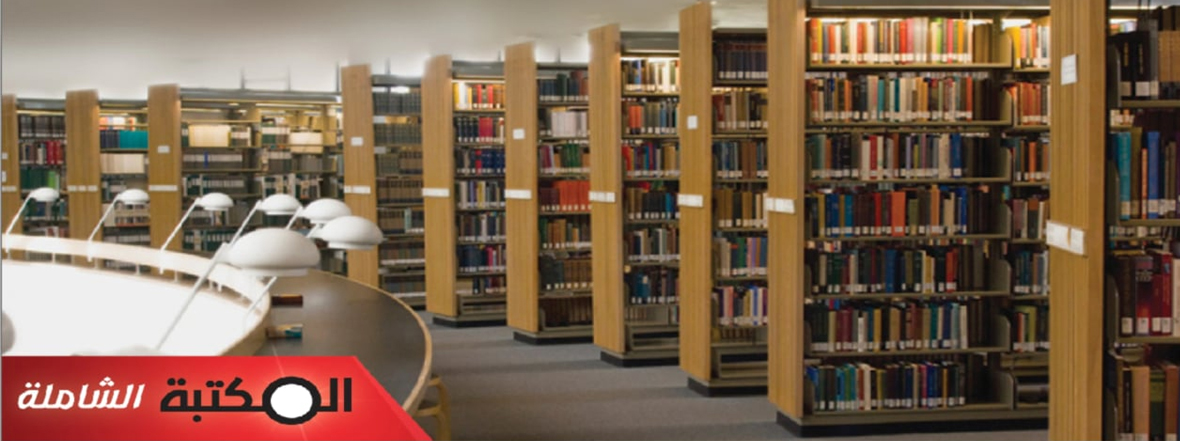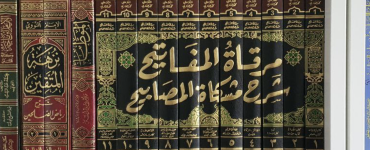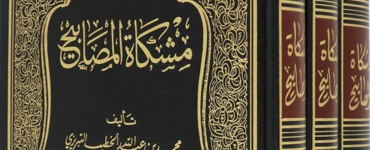The following is an excerpt from Muftī ‘Abd al-Mālik’s book “al-Madkhal ilā ‘Ulūm al-Hadīth al-Sharīf”[1] on the use of computer programs to locate and grade hadīths. In this excerpt, Muftī ‘Abd al-Malik, seeing the abuse of these programs, sets out to clarify several misconceptions regarding them. Although the author’s contention lies mainly in the usage of computer programs to locate and grade Hadith, his insights are equally applicable to internet searches, printed books, and computer searches in other sciences as well. No doubt computer programs have immense benefit and can open many avenues when searching for hadīth, but everything needs to be put into perspective, and that is what this article hopes to achieve. An idiomatic translation was adopted to make the article more reader-friendly. – Muntasir Zaman
In recent years, usage of computer programs to locate hadiths has increased dramatically. Computer programs have come to be widely regarded as the simplest, fastest, and most efficient method of locating hadiths. These programs, however, are only useful as supplementary aids. Some people have misunderstood the correct application of this method and have gone to extremes in employing it. It is therefore paramount that these misconceptions be addressed. The following is a brief outline of some misconceptions about the usage of computer programs in locating and grading hadith – and inspiration is from Allah:
First, a computer search is not exhaustive and encompassing, leaving nothing unnoticed. Many people assume that by virtue of relying on the computer, their searches are not prone to any error. This is a clear misunderstanding. Computer programs are susceptible to error. After all, the information contained in these programs was inputted by a person who himself is human; he errs and forgets. It is beyond the scope of a computer to grant [the researcher] freedom from fault. It is only a tool that Allah made accessible for our use. It is to be used; some will use it correctly while others will use it poorly. The obstacles and drawbacks that present themselves in preparing and using indices (fahāris) are also possible in preparing and using a computer program.
Second, computer programs do not suffice a person of the companionship and guidance of scholars. One might assume this on the basis that these programs are all-inclusive as they are entire libraries on their own and contain works that span all the Islamic sciences, such as Hadīth, Tafsīr, Fiqh, Islāmic History, etc. However, a computer program cannot make one independent from the books contained therein, let alone the countless books not found therein. It is beyond the scope of books- let alone computer programs- to provide education, depth, and correct nurturing. A computer program can therefore never replace the guidance and company of scholars.
Third, these programs can sometimes lead a person to erroneously believe that the task of ijtihad is simple. Before, this idea was supported with the availability of printed books and the ease of using the various indices. If it is accepted that this idea is correct, then the Mujtahid jurist in reality is the books, indices, programs, and computers! Not the person who uses them when necessary and then closes them once the required search is finished! Allah reward our teacher Shaykh Muhammad ‘Awwāmah who writes in his monumental book “Adab al-Ikhtilāf fī Masā’il al-Dīn wa al-‘Amal” (p.48):
It is a clear loss and a gross error that some people assume that the academic skill required to exercise ijtihād, pass verdicts, and grade hadiths is now easily achievable with a few coins by purchasing the necessary computer programs that have a database and index for the nine primary hadīth collections! Thus, with the press of a button one learns: who narrated the hadith, what is its authenticity, and the variations in its wording.”
Fourth, some people quote the text of a hadīth from a program without consulting the original source. Even if the original source corresponds to the text in the program, this practice is quite dishonest. Thus, to fulfil the trust of knowledge and to absolve ones responsibility, it is essential to cite the program from which the text was taken when the original source is not consulted. [2]
In brief, a computer program is no more than a tool for easy searching. It cannot replace actual research, study, or the companionship and guidance of scholars. A person is ignorant if he thinks that the presence of a verdict, hadith, juristic opinion, grading of a hadith, etc. in a program will free him of error and suffice him from consulting original sources and searching for their evidence or the accuracy of its sources.
————————————————————
[1] From pp.82-84. For a brief biography of Muftī ‘Abd al-Mālik alongside a review and soft copy of his book, refer to the following link: https://ahadithnotes.wordpress.com/2014/07/23/book-review-an-introduction-to-the-disciplines-of-the-noble-hadith-by-mufti-abdel-malik-al-kumillai/ [2] It is not expected for every student and scholar to have access to massive libraries, but the availability of soft copies of many books nowadays definitely makes this task much easier. It is worth noting that the author wrote these remarks several years ago, and since then such computer programs have improved to a great extent.Written by Muntasir Zaman






